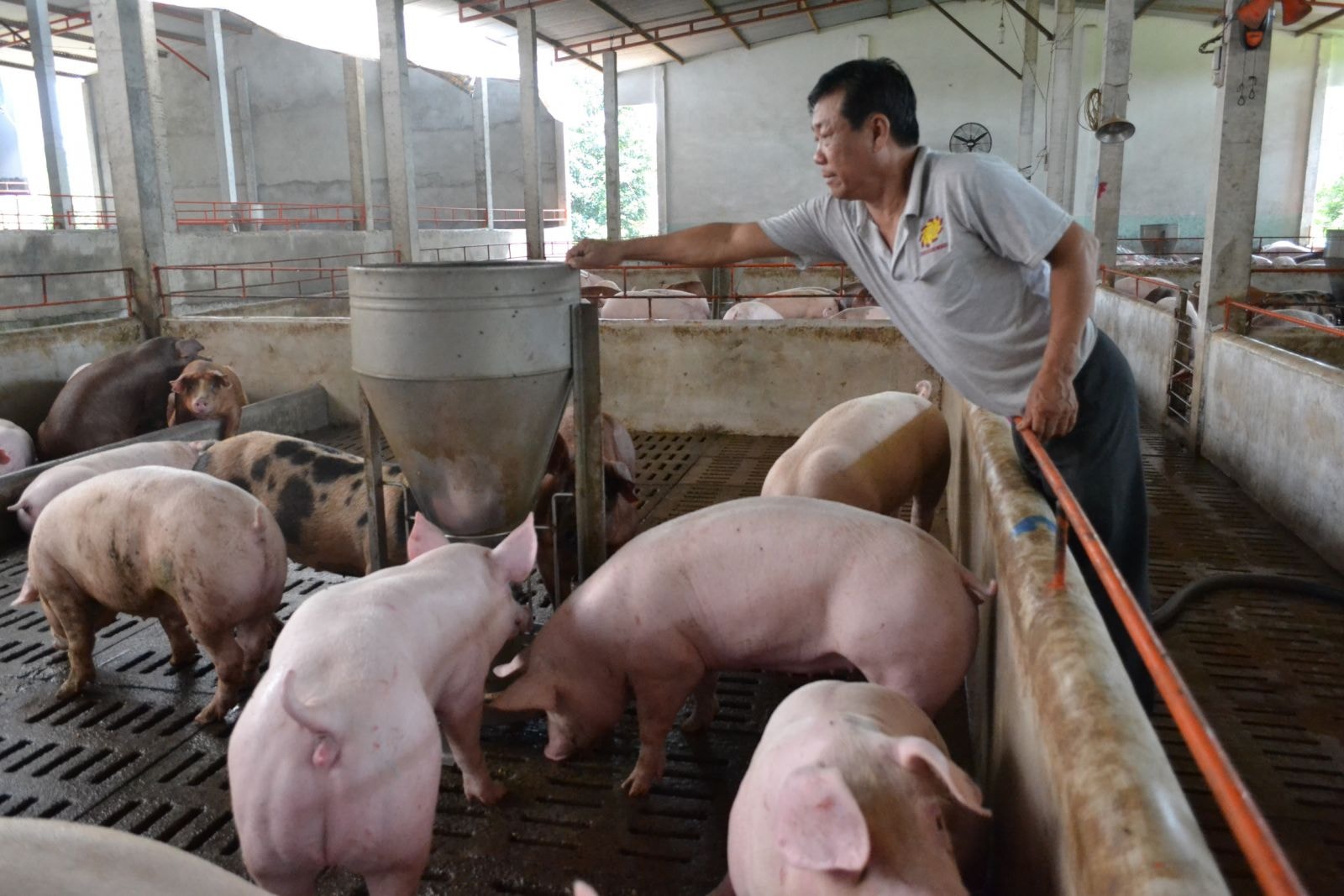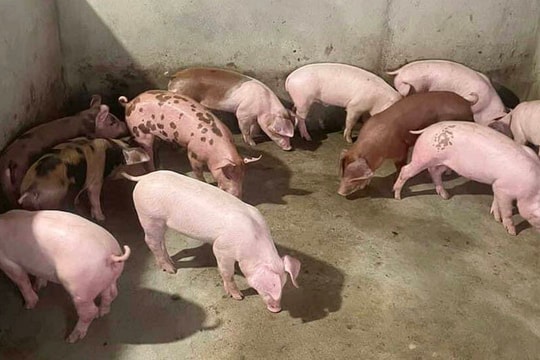Pig price today October 17, 2024: The market nationwide continues to plummet
Pig price today October 17, 2024: Recorded downward adjustment in all three regions. Currently, pig price nationwide is fluctuating from 62,000 - 65,000 VND/kg.
Pig price in the Northern region
The Northern region witnessed a decrease in the price of live pigs on October 17, 2024, with a decrease of VND 1,000/kg. The current trading price ranges from VND 64,000 to VND 65,000/kg.
The provinces of Bac Giang, Yen Bai, Phu Tho, Ha Nam, Vinh Phuc, Ninh Binh and Tuyen Quang all recorded a decrease of VND1,000/kg.
In Hanoi, Hai Duong and Hung Yen, the price of live pigs decreased more sharply, up to 2,000 VND/kg, down to 64,000 VND/kg.
Other provinces in the region are buying live pigs at 65,000 VND/kg.

Pig price in the Central Highlands region
Pig prices in the Central Highlands region have changed slightly today. Some provinces have kept prices unchanged, while others have slightly decreased by 1,000 VND/kg.
Currently, the price of live pigs in the Central region fluctuates from 62,000 to 64,000 VND/kg.
Specifically, Ha Tinh and Ninh Thuan have reduced prices to 63,000 VND/kg.
Dak Lak is the province with the deepest decrease, with 2,000 VND/kg, bringing the price down to 62,000 VND/kg.
Pig price in the Southern region
Pig prices in the South decreased today, ranging from 63,000 to 65,000 VND/kg.
In Ben Tre, the price of live pigs dropped to 62,000 VND/kg, while in Tra Vinh it dropped 1,000 VND to 63,000 VND/kg.
The highest prices were recorded in Binh Phuoc, Dong Nai, Binh Duong, Tay Ninh, Ba Ria - Vung Tau and Ho Chi Minh City, at VND65,000/kg. Other places had prices of VND64,000/kg.
Experts say the price drop is due to the decline in small-scale farming and the growth of large-scale farming. This has helped the country's pig herd recover, supply increase and the market become stable.
In Dak Lak province, 20 communes and towns in 7 districts have been affected by African swine fever. The total number of infected pigs is up to more than 1,000, with Ea Sup district accounting for the largest number of 741 pigs.
Authorities quickly responded, conducting inspections, disinfecting and destroying diseased pigs to prevent the disease from spreading.
The People's Committee of Ea Sup district has directed localities and relevant units to strengthen control, especially in areas where the epidemic has appeared. Disease response teams have been established, and human resources and funding have been mobilized to quickly contain the epidemic.
Measures taken include: not dumping diseased pig carcasses into the environment, spraying disinfectants, disinfecting areas around outbreaks, and closely monitoring households with dead pigs. Prohibiting the sale of sick or suspected pigs to prevent the spread of disease and protect public health.
Authorities will strictly handle violations of the law related to the transportation, trade, and slaughter of pigs of unknown origin or without quarantine certificates.
A working group has been established to support villages and hamlets in thoroughly handling outbreaks and preventing the risk of disease outbreaks.







